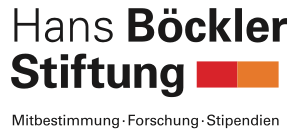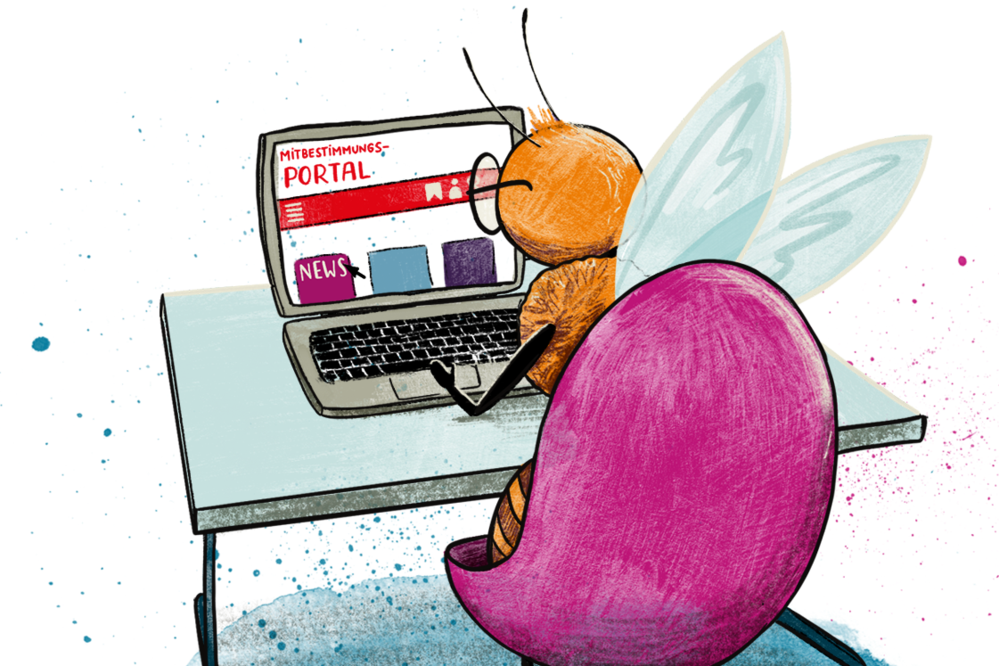Column
Corona-fied: employers spying on remote workers in their homes?
As the COVID-19 pandemic has forced more people to work from home, employers have begun using digital surveillance technology to increase control and maintain productivity. And not just in the US – in Germany too?
The future of work is here, ushered in by a global pandemic. So far in the United States, it appears to be turning employment more into a Big Brother experience than into a Worker’s Paradise. Disturbing increases in surveillance of remote at-home workers may soon wash up on European shores. Indeed, there are already signs that it has arrived in Germany, despite the General Data Protection Regulation which should, in theory, prevent the misuse of digital spying in people’s homes.
With the number of remote workers surging, recently a number of US employers have begun requiring their workers to download spying software to their laptops and smart phones. The goal is for businesses to monitor what their remote employees do all day, and to track job performance, productivity and reduce so-called “cyber-slacking.” Software products like Hubstaff, which tracks a worker’s mouse movements, keyboard strokes, webpages visited, email, file transfers and applications used, is surging in sales. So is TSheets, which workers must download to their smart phones so that employers can keep tabs on their location.
The system creates a minute-by-minute timeline of every app and website viewed, categorizing each as ‘productive’ or ‘unproductive’ and ranking workers by their ‘productivity score’.
One woman who works in marketing at a US company says her employer has started using software called Time Doctor, which downloads videos of employees’ screens while they work. It also uses a computer's webcam to take a picture of the employee every 10 minutes. "If you're idle for a few minutes, if you go to the bathroom or whatever, a pop-up will come up and it'll say, 'You have 60 seconds to start working again or we're going to pause your time,' " she says.
Another system, InterGuard, can be secretly installed on workers’ computers. It creates a minute-by-minute timeline of every app and website viewed, categorizing each as “productive” or “unproductive” and ranking workers by their “productivity score.” Other employers are using a lower tech version, requiring workers to stay on a teleconference like Zoom all day so they can be continually watched. One website shows 70 companies offering employee monitoring software for commercial purchase.
Remote workforce growth – the new normal?
As the number of remote workers rise, fears are growing among labor advocates that this is quickly becoming the "new normal." Before the COVID-19 pandemic, only about 3.6% of U.S. workers regularly worked from home. By April 2020, the pandemic had forced anywhere from a third to a half of US workers to do their jobs from their kitchens, living rooms, and home offices. In OECD member countries, an estimated 40 per cent of workers have been working from home during the pandemic.
One surveillance company says it has seen its business triple.
And it looks like this trend is going to continue. One survey found that 74% of companies intend to keep some proportion of their workforce on a permanent remote status, with nearly a quarter of respondents saying they will move at least 20% of their on-site employees to permanent remote status. Google/Alphabet recently announced it will keep its 200,000 full-time and contract employees home until at least July 2021, and half of Facebook employees will work from home over the next decade. Hub International, a global insurance brokerage, has shifted 90% of its 12,000 employees to remote status, and Nationwide Insurance is closing five of its large regional offices in favor of remote workers. Teleperformance, the world’s largest call-center company, estimates that around 150,000 of its employees – nearly half its global workforce -- will not return to a physical worksite. As one employer put it, “The drop in productivity is more than compensated by the fact that I can eliminate the expense of running an office.”
The cost-saving incentive for many businesses is clear – but only if those businesses can be sure that their remote workers will remain on task and productive. Consequently, demands for worker surveillance software have surged in recent months. Since the COVID-19 outbreak, one surveillance company called Awareness Technologies says it has seen its business triple. Executives at Hubstaff and Teramind also say demand for their companies’ monitoring products have tripled.
Big Brother in the home?
But the digital spying technology has other perverse panopticon potential. Some of the new technologies allow employers to substitute sense-around virtual reality for the real world. The surveillance business Pragli helps companies use technology to re-create various features of the physical workplace in a remote environment. This leads to some bizarre “virtual office” scenarios, replete with a gossip-ready “water cooler” and “chat room cubicles” for workplace chitchat. Employees are instructed to keep their home webcams and microphones always on, so a spontaneous face-to-face chat is only a click away. Just select another worker’s avatar and you can instantly start a video conversation, mimicking “swinging by their desk” in a real-world office. In a Pragli office, all workers’ virtual avatars are lined up on the computer screen, viewable and available at all times.
Surveillance companies are encouraging companies to frame this spying as ‘social gathering.’
Pragli promotes its product as a frictionless video chat system that will help “create that sense of togetherness" again. Togetherness? By unleashing a digital Big Brother that invades workers’ homes? By automatically sending users an alert at 9 a.m. telling them, “Time to go to work!" (which is one of its features)? The company also is working on a mobile app for workers to conduct virtual meetings while on a walk. And developing intrusive facial recognition that will display a worker’s real-world emotion on their virtual avatar’s face.
To avoid employee backlash, Pragli and other surveillance companies are encouraging companies to frame this spying in the New Age hipster lingo of “social gathering.” This Silicon Valley hype is meant to sanitize the fact that workers are being constantly watched. Another of its features allows businesses to organize online company happy hours, game nights and other virtual “ice breakers” in a desperate bid to disguise surveillance as “togetherness.”
But that framing wears thin compared to the reality of this “brave new world.” Unsurprisingly, such digitally-mandated corporate camaraderie is quickly burning some workers out. Alison Green, who writes a popular “Ask a Manager” advice column, has heard from dozens of remote workers who feel fatigued by this digital spying, yet fear they will be branded as a troublemaker or lose their job if they speak out. And since remote workers hardly see each other – and increasingly may not even know many of their coworkers – these factors will make labor organizing and collective worker empowerment increasingly challenging.
Outdated laws keep it legal
Despite the intrusion of all of this surveillance activity, it is a legal practice in the US. Individual state laws vary over whether companies must inform workers that they're using tracking software, but “when you’re on your office computer, you have no privacy at all,” says Lewis Maltby, president of the National Workrights Institute. “Anything and everything you do is probably monitored by your boss.”
Current laws are vastly outdated, based on the Electronic Communications Privacy Act of 1986, when the primary form of electronic communication was … the telephone. That was a distant time when desktop computers were first becoming popular, and smart phones were not yet a glint in Steve Jobs’ eye. US labor unions have been slow to advocate for updating these outdated laws, though one union, the United Electrical, Radio, and Machine Workers, has been working to blunt the worst of the abuses. Not only should unions advocate to update the laws and limit digital spying, but why not also demand that home-based workers be compensated by employers for use of their house, utilities and the internet? And that the employer remains responsible to provide equipment and a safe workplace, even in the home?
The land of GDPR is immune – or is it?
German and European Union privacy laws are more up-to-date and strict than in the US. Many EU member states have a number of protections for remote and at-home workers. Under the General Data Protection Regulations (GDPR), adopted in 2018, individuals have more control of their personal data and its use by businesses. Plus many German workers are additionally protected by the Federal Data Protection Act (Bundesdatenschutzgesetz) (BDSG), and by co-determination and works councils. "There is clear jurisprudence here," says employment lawyer Peter Wedde from the Frankfurt University of Applied Sciences. "Total surveillance, in which the employer can monitor each individual step, is not permitted in Germany."
Yet the pandemic appears to be launching an all-out assault on these restrictions. The business newspaper Handelsblatt reports that a number of German companies are increasing their use of remote surveillance programs. Hubstaff has confirmed that, since March, demand in Germany for their product has tripled (though Hubstaff will not disclose who its German customers are). Private detective agencies are receiving numerous orders from German companies seeking to spy on their workers. Media outlets Die Zeit and Hamburger Abendblatt report that one Frankfurt company that specializes in digital monitoring has been receiving up to 25 customer inquiries per day.
If the GDPR and German law forbids this, how is it possible that US-based digital monitoring companies like Hubstaff, ActivTrak, StaffCop and Timedoctor appear to be making inroads into Germany?
For those workers not represented by a union or works council, it is much easier for an employer to hide illegal surveillance practices.
Existing laws have a number of loopholes that, under certain conditions, are allowing employers to get away with monitoring. Those conditions include for potential criminal activities, such as prevention of fraud or drug abuse (which pre-emptively allows broad application and abuse). But also when employees use company equipment and communication systems, monitoring can be allowed if employees give their consent. Given the clear imbalance of power between businesses and workers, an employee’s consent may not be truly voluntary. Especially during a pandemic-driven economic collapse, with Germany recently reporting an unprecedented 10 percent drop in its gross domestic output that has erased almost a decade of growth since the eurozone crisis in 2010, many workers are understandably worried about keeping their jobs. For those workers not represented by a union or works council, it is much easier for an employer to hide illegal surveillance practices. Now companies have access to even more effective tools that are harder to detect.
The COVID-19 loophole
In addition, in response to the coronavirus outbreak, companies such as PricewaterhouseCoopers and Salesforce have developed intrusive applications that enable companies to continuously track the health status of their employees. This is intended to reassure employer and employees alike, but its potential for abuse is alarming. Unlike Germany’s coronavirus tracing app, which has a very high data protection standard, these private applications do not allow anonymity. Often they include a system for tracking contacts between employees within an office, and a mobile app for collecting information about their health status.
Large EU companies like the French bank Crédit Agricole have started deploying such applications, and a number of large US employers, including Amazon, Walmart, Home Depot and Starbucks, are taking the temperatures of their employees before they are allowed to work. Worker health is important, and employers have a legitimate need to collect the necessary data to safeguard their workplaces, especially in response to a pandemic. But what is the appropriate level of “health intrusion”? How “voluntary” is the participation of workers, and who gets to decide?
Remote work should not become a downward slide toward a Big Brother panopticon
The future of work has become more uncertain than ever. Post-pandemic, much will depend on how many companies continue to maintain or even expand a large remote workforce. Several years ago, large companies like Yahoo, IBM and HP ended their companies remote-working experiments because their managements decided that the downsides outweighed the positives.
In any case, labor unions and advocates must ensure that the pandemic is not misused by businesses as an excuse to worsen conditions for employees who work out of the office. It is easy to imagine how the lines between ‘remote’ work and ‘platform’ work could blur, leading to more ‘Uberization’ as work devolves into ‘independent’ contracts, bogus self-employment and ‘pay-by-project’ arrangements that can be easily outsourced to remote (and lower cost) destinations. Labor advocates must push for a strong and modern legal data protection framework (even better than the GDPR), and an effective enforcement system against privacy abuse that disincentivizes illegal behavior, including fines and jail terms. Strong unions and codetermination rights would help sensitize the public to these dangers. Remote work should not become a downward slide toward a Big Brother panopticon that penetrates ever more deeply, including into our homes.
German language version
-
Column
The high stakes of the global AI infrastructure race
-
Column
AI's impact on US workplaces continues to accelerate
-
Column
Trump and Musk mounting furious attack on labor rights and workers
-
Column
US support for codetermination from an unlikely source – conservative Republicans
-
Column
Can the EU and the US protect their 21st century workforces?
-
Column
Massive tech layoffs continue as companies retool for AI
-
Column
US labor unions strike over impacts of AI and new technologies
-
Column
Antitrust law is (finally) being enforced again in the U.S.
-
Column
Employer surveillance against workers spreads
-
Column
If it seems too good to be true … it probably is
-
Column
Helping gig workers help themselves
-
Column
Workers of the World…quit?
-
Column
Will US labor unions stand by Uber drivers and gig workers?
-
Column
Stirrings of union organizing in the “paradise” of Big Tech
-
Column
Will Pres. Joe Biden restore worker and union power?
-
Column
Corona-fied: employers spying on remote workers in their homes?
-
Column
The challenges of the post-coronavirus workforce
-
Column
Amazon workers fight back
-
Column
A blow against "bogus self-employment" and gig economy
-
Column
Renewing Worker Cooperatives for the Digital Age
-
Column
Codetermination takes the spotlight in the US
-
Column
Who will fight for the 'good jobs' economy?
-
Column
Trump attacks workers and the labor movement in the US
-
Column
The distributed workforce: what will jobs of the future look like?
-
Column
The "Uber way" of precarious work



